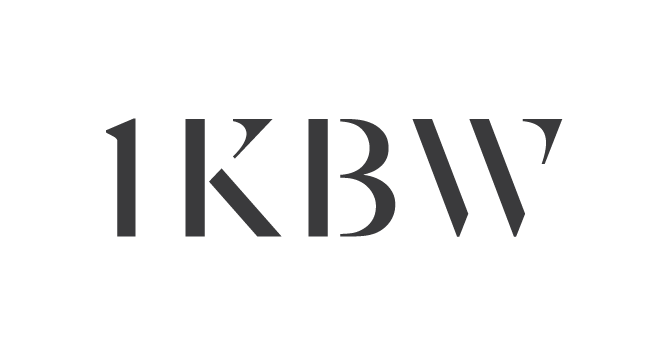Knowledge Hub
Join the Conversation!
Impartial and independent, ThoughtLeaders4 HNW Divorce Knowledge Hub hosts cutting edge industry content and insight.
Email maddi@thoughtleaders4.com to submit content.
Between Misery and Solace: Information Rights of Liechtenstein Discretionary Beneficiaries
Date: 08/01/2024 Type: Articles Topic: Private Client | Investment and HNWI’s |Information rights: THE new hot-button issue
In recent years, the question of information rights, especially in relation to Liechtenstein trusts, has become something of an emotionally discussed hot-button issue in Liechtenstein trust practice and has led to heated exchanges among practitioners, nationally and internationally. The general notion, especially in the international private client community, seems to be that due to recent developments, Liechtenstein discretionary trusts suffer from a distinct lack of control, as Liechtenstein Courts have considerably limited the information and control rights of discretionary beneficiaries. This has been widely conceived as an attack on the beneficiary principle and has led to widespread criticism by Liechtenstein practitioners as well as disgruntled beneficiaries and their advisors in foreign jurisdictions.
While some of this criticism may be warranted, it seems this fairly limited issue has created widespread distrust against all Liechtenstein structures, which –– as will be shown –– is not quite justified. This article will briefly outline the reality of beneficiaries' rights in Liechtenstein trusts and foundations, as the latter have suffered from "suspicion by association", even if the legal framework governing foundations is quite different to the one governing trusts.
Information rights in trusts
When it comes to trusts, there are indeed some issues, which reflect badly on Liechtenstein as a jurisdiction for private wealth structures. In a fairly recent decision, the Liechtenstein Supreme Court has ruled that discretionary beneficiaries of Liechtenstein trusts shall have no rights to receive information of any kind from the trustee, unless there is a provision explicitly providing for such information rights in the trust deed. It should be noted that these limitations do not apply to beneficiaries of a trust with a legal entitlement (as opposed to discretionary beneficiaries), as these would have information rights under the provision of Article 923 para 2 Persons and Companies Act (PGR).
This was followed by another decision, ruling that discretionary beneficiaries of Liechtenstein trusts shall have no standing in supervisory proceedings. While the Liechtenstein Supreme Court ruled that discretionary beneficiaries have a right to make a complaint, such complaint would not actively involve them in the subsequent proceedings and would not grant them any right of legal standing nor a right to appeal. Although the supervisory court has in theory a legal obligation to consider such complaints carefully and take appropriate steps to remedy any breaches of duty by the trustee, there are no mechanisms for the beneficiaries to influence such proceedings.
Both rulings have invited considerable criticism in Liechtenstein and there is general agreement that these legislative gaps pose a risk to be exploited by the trustee and highlight the need for reform.
Considering the criticism, the Liechtenstein government has recently provided a draft revision of the Liechtenstein trust law to remedy these issues and to make sure that no lack of control remains in existing legal Liechtenstein structures. The legislative process is still at an early stage, though, and it may still take considerable time until the envisaged mechanisms are in place.
It should be said that even if the legal position of discretionary beneficiaries in existing trusts leaves a lot to be desired, it is undisputed for newly established trusts that it is well within the powers of the settlor to provide for specific information rights for all beneficiaries in the trust deed. This should always be kept in mind when setting up new Liechtenstein trusts.
Moreover, there are circumstances under which even discretionary beneficiaries might have information rights. Article XV of the Introductory Act to the Liechtenstein Civil Procedure Law provides for a (procedural) right to information, if there is a "special legal relationship" between the trustee and the person requesting the information. There are cases in connection with Liechtenstein trusts, where these could apply even to discretionary beneficiaries, for instance, if a beneficiary tries to enforce a claim for breach of trust and lacks the necessary information to bring such action, to which he is entitled under Article 924 PGR. It should be noted that this mechanism has yet to be tested, but it could provide a potential way out for some extreme cases, until the envisaged legislative changes take effect.
Information rights in foundations
As indicated above, the legal uncertainty in relation to information rights and legal standings for discretionary beneficiaries of Liechtenstein trusts has led to something of a general suspicion in relation to all Liechtenstein structures. This may have been embraced by a small number of foundation boards, which, exploiting the ambiguities in relation to trusts, may have tried to restrict information rights of beneficiaries of Liechtenstein foundations as well.
The legal position, however, is clear. Liechtenstein foundation law provides under Article 552 § 9 PGR broad and virtually unrestricted information rights of beneficiaries, irrespective of whether they are discretionary in nature or not.
In foundation law, information rights are seen as a key tool of the internal foundation governance, are mandatory and cannot be waived by beneficiaries, let alone the foundation board.
The question of the content and scope of the beneficiaries' information rights is of course also a key issue for foundations, which are generally much more popular in Liechtenstein than trusts. In the case of foundations, the legislator explicitly favored internal foundation governance in the course of the 2008 amendment to foundation law, which is why the information rights as a key tool of this internal foundation governance are mandatory and essentially irrevocable. It should be emphasized that foundation law does not limit these rights to information and disclosure to entitled beneficiaries, but in particular grants the same rights to discretionary beneficiaries.
The beneficiaries' rights to information and disclosure are standardized in Article 552 §§ 9–12 PGR. The core of the rights to information and disclosure is defined by Article 552 § 9 PGR, which grants the beneficiaries access to the foundation documents (para 1) and a right to information, reporting and accounting (para 2), in each case, however, only "insofar as it relates to their rights". The beneficiary is yet prohibited from exercising the rights in (i) an unfair or (ii) abusive manner or (iii) in a manner that conflicts with the interests of the foundation or other beneficiaries, although it has been shown in the past that the Liechtenstein Supreme Court has increasingly restricted the scope of application of these grounds for refusal to provide information.
Apart from these legally regulated options, the founder (and only him) has the option of restricting information rights in certain cases by means of structural provisions, for example by setting up a supervisory body or placing the foundation under official supervision. There is no lack of control in neither of these limited cases.
Conclusion
While some of the criticism targeted against Liechtenstein may be justified in relation to trusts, it should be noted that for newly established settlements, a settlor still has any right and power to implement broad and unrestricted information rights for discretionary beneficiaries.
The Liechtenstein government has –– driven by widespread criticism in the legal literature –– recognised a structural problem when it comes to legal protection of discretionary beneficiaries of Liechtenstein trusts and has taken measures to remedy these issues. While (for the time being) there remains a gap in relation to the control of some Liechtenstein structures, there are methods to mitigate these issues as well as various options to consider for obtaining information, each of which should be evaluated on a case by case basis. While some of the hurdles might be difficult to overcome in some instances, there can be no doubt that the rule of law still prevails in Liechtenstein and does apply to Liechtenstein trusts.
When it comes to Liechtenstein foundations, any criticism is completely unwarranted as the legal protection for beneficiaries of Liechtenstein foundations is top notch, and surely on par with other trust and foundation jurisdictions. Practitioners should be wary of but confident in the face of foundation boards trying to restrict beneficiaries' rights. The law is clearly on the beneficiaries' side.
Thus, not all is lost for beneficiaries of Liechtenstein structures; there remains a glimmer of solace for beneficiaries who have considered themselves lost in misery.
Author
Sebastian Auer & Lukas Pachschwöll - Gasser Partner
Our HNW Divorce Corporate Partners















